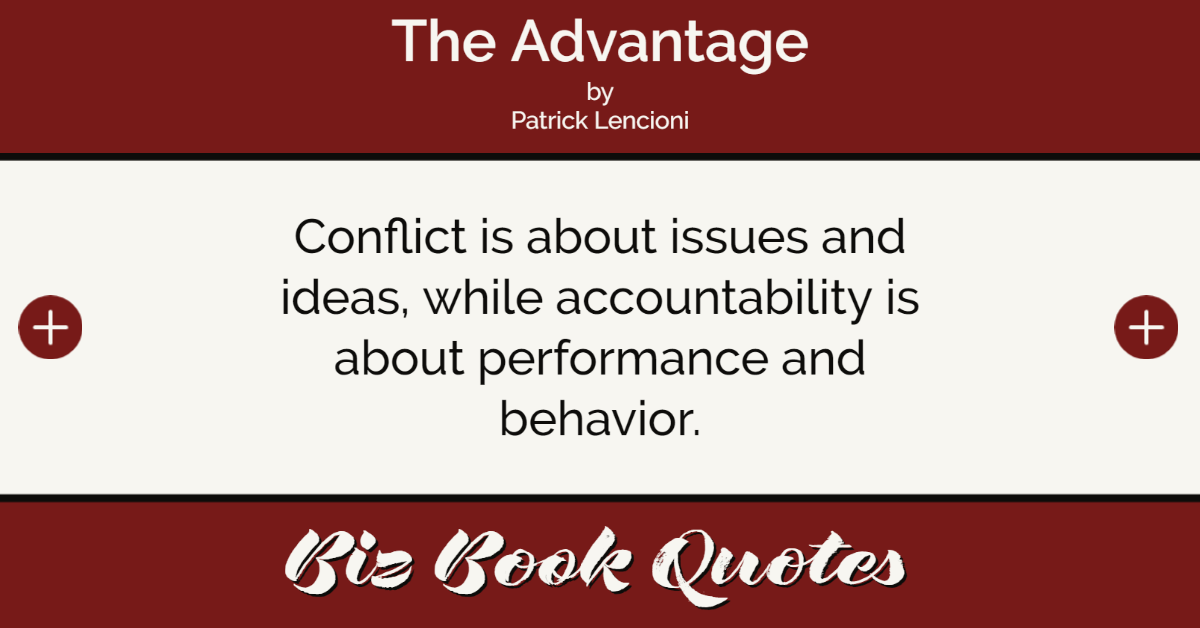 |
Conflict is about issues and ideas, while accountability is about performance and behavior.
|
60 |
 |
The ultimate point of building greater trust, conflict, commitment, and accountability is one thing: the achievement of results.
|
65 |
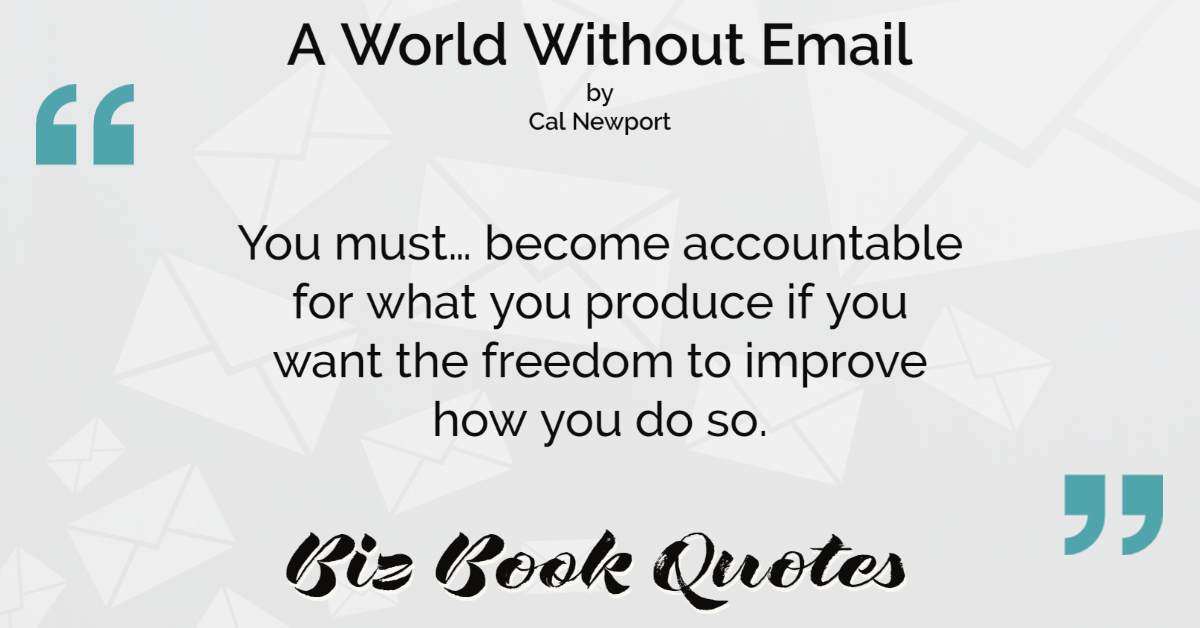 |
You must… become accountable for what you produce if you want the freedom to improve how you do so.
|
234 |
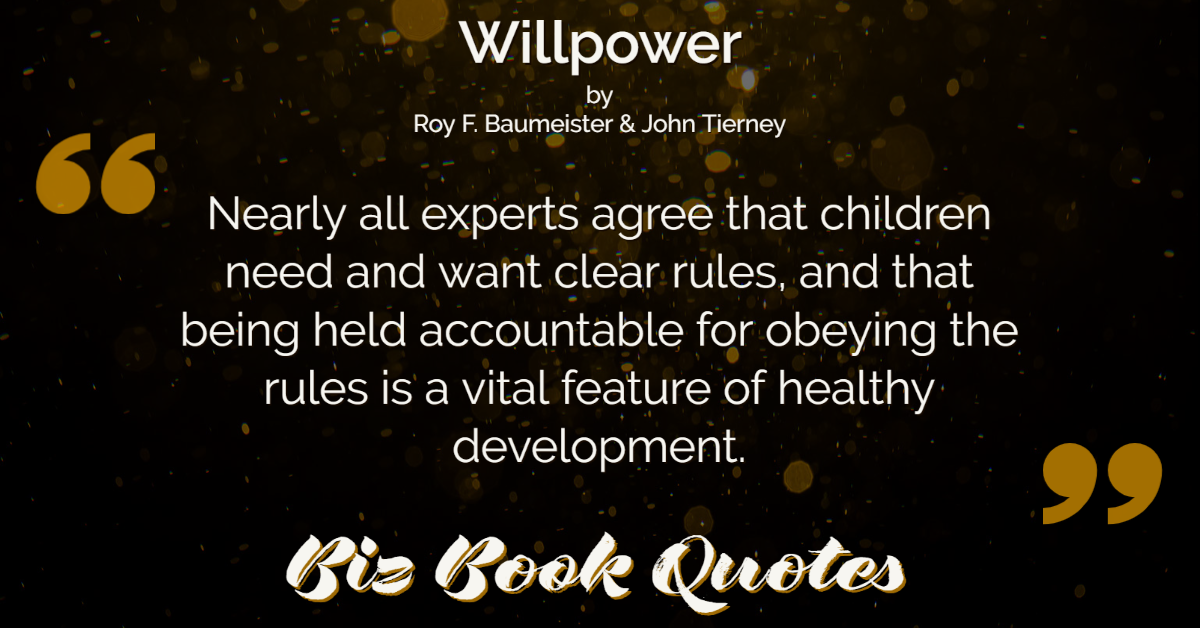 |
Nearly all experts agree that children need and want clear rules, and that being held accountable for obeying the rules is a vital feature of healthy development.
|
203 |
 |
What, at its heart, is the job of a boss? It is getting work done through others and accepting accountability for their performance.
|
430 |
 |
In the context of teamwork, [accountability] refers specifically to the willingness of team members to call their peers on performance or behaviors that might hurt the team.
|
212 |
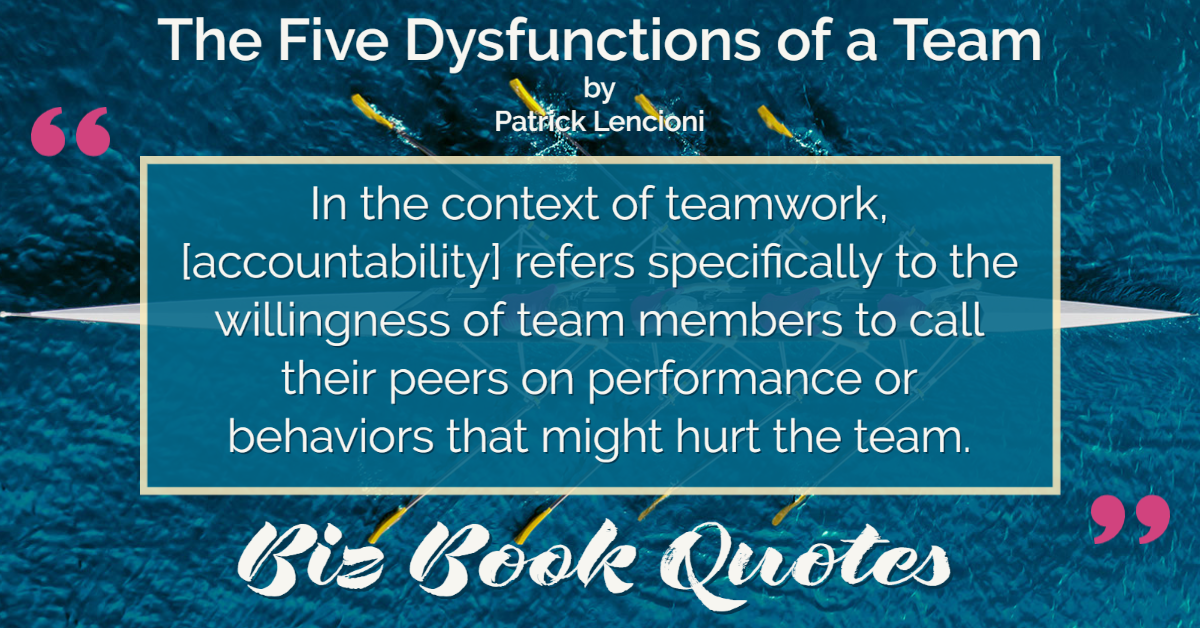 |
Members of great teams improve their relationships by holding one another accountable, thus demonstrating that they respect each other and have high expectations for one another’s performance.
|
213 |
 |
The enemy of accountability is ambiguity, and even when a team has initially committed to a plan or a set of behavioral standards, it is important to keep those agreements in the open so that no one can easily ignore them.
|
214 |
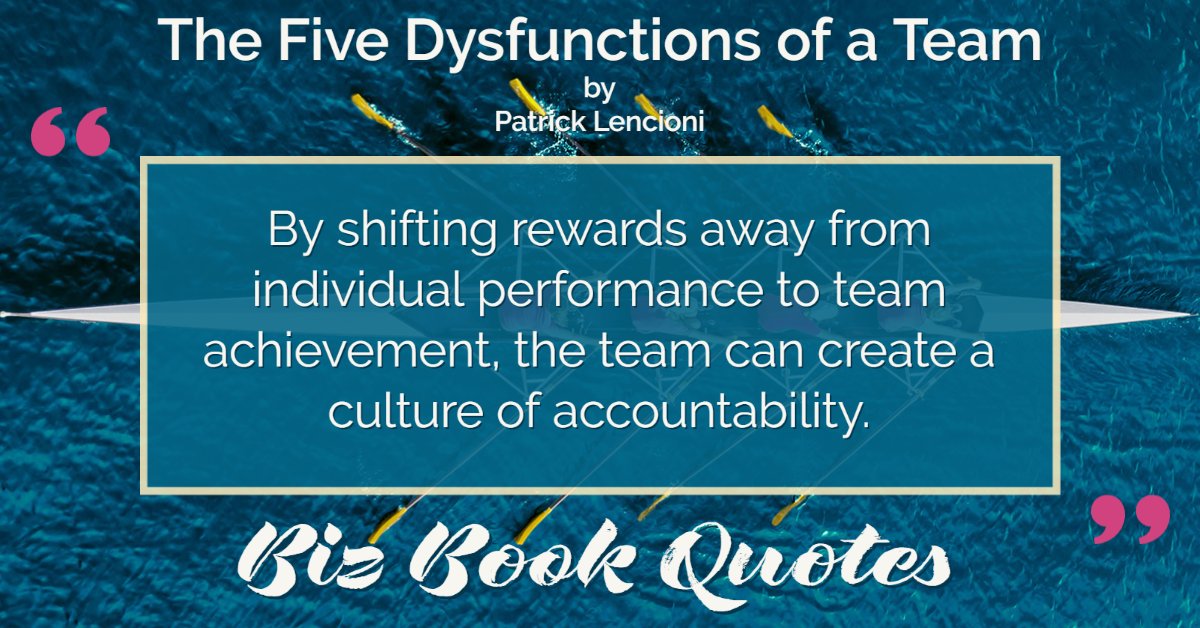 |
By shifting rewards away from individual performance to team achievement, the team can create a culture of accountability.
|
215 |
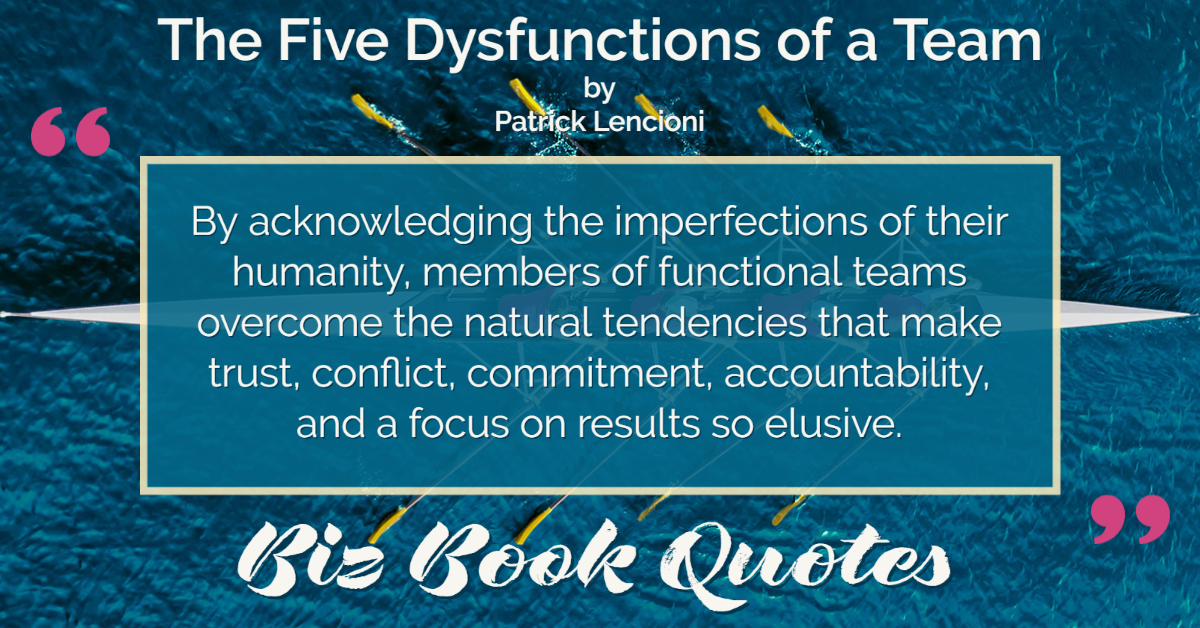 |
By acknowledging the imperfections of their humanity, members of functional teams overcome the natural tendencies that make trust, conflict, commitment, accountability, and a focus on results so elusive.
|
220 |